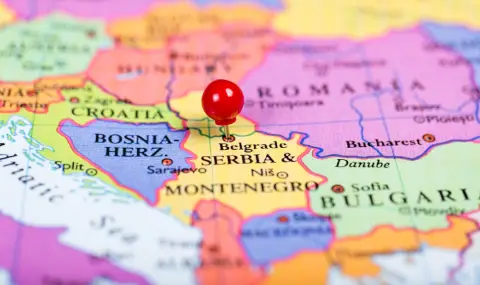Montenegro has a new government in which pro-Russian and pro-Serbian parties play an important role. The hitherto pro-Western and pro-European state is divided. Where will he go?
Until recently, the small Western Balkan state of Montenegro seemed distinctly pro-European. Autocrat Milo Djukanovic, who held various leadership positions for three decades, lost the presidential election in April 2023, and three years earlier, in the summer of 2020, his Democratic Party of Socialists (DPS), successor to the former communist party in the country, had to come out in opposition. Since then, not everything has gone smoothly politically, but Montenegro's integration into the EU, its transatlantic orientation and its policy of reforms, including above all the fight against corruption and organized crime, have never been questioned.
Now that can change. Since last week, Montenegro has had a government that, according to the country's independent observers, is a true cabinet of horrors. "It dangerously divides society and calls into question the European path of the country's development," writes publicist Zelko Ivanovich, director of Vijesti newspaper.
Montenegro Prime Minister Milojko Spajic from the Europe Now Alliance, who will be in office from the fall of 2023, presented his reshuffled cabinet last week. He is supported by a coalition that also includes the leaders of pro-Serbian and pro-Russian parties - Andrija Mandic of the New Serbian Democracy (NSD) and Milan Knežević of the pro-Russian Democratic People's Party of Montenegro (DNP). Mandić is also the Speaker of the Montenegrin Parliament from October 2023.
Against the interests of Montenegro
Mandić and Knežević are staunch supporters of Putin, indirectly oppose Montenegro's independence from Serbia, proclaimed in 2006, and reject EU integration, as well as the country's NATO membership, which has been in place since 2017. a. They support close ties between Montenegro and Serbia, oppose the independence of Kosovo and deny the genocide in Srebrenica. Thus, they and their parties question everything that is part of the meaning of existence and identity of Montenegro.
One of the side effects of the new government is that the number of ministers has risen to a record 32 - in a country with a population of just over 600,000.
The entry of politicians like Mandić and Knežević into the ruling coalition was part of a deal between Spajić and the pro-Serbian parties. Spajic, whose pro-European party had a fragile majority after last year's election, was backed by 13 MPs from the pro-Serbian bloc. In return, these parties were to be rewarded with ministerial posts, which has already happened. NSD and DNP do not hold key positions in the new government, and Mandić and Knežević themselves did not receive ministries. However, it is questionable whether cooperation will lead to "more stability" for the Spaich government, as the Prime Minister promises.
Sharp criticism from inside and outside
Reactions from the country and abroad were not long in coming. Montenegrin President Jakov Milatović, who parted ways with Spaić and his PES a few months ago over a dispute over the national energy company, announced in his commentary on the restored Montenegrin government that "Montenegro is a victim of the most primitive political deals and irresponsibility, which Prime Minister Milojko Spajic constantly demonstrates in the management of the country".
And the US reacted immediately. "We are concerned about the inclusion in the Montenegrin government of parties and leaders who do not condemn Russian aggression against Ukraine, reject EU sanctions against Russia, and whose actions are in direct conflict with the principle of good neighborly relations," the US embassy said in a statement. in Podgorica.
Neighboring Croatia reacted most sharply: only a day after the change of government in Podgorica, the Croatian Foreign Ministry declared three high-ranking politicians undesirable in Croatia. Apart from Mandić and Knežević, this also applies to Deputy Prime Minister Aleksa Bečić. The three are unwanted in Croatia due to "systematic measures to disrupt good neighborly relations" and "persistent abuse of the Republic of Croatia for domestic political purposes".
"Either in the abyss or in the EU"
How will the entry of pro-Serbian and pro-Russian parties affect the foreign policy of Montenegro? Vuk Maras, head of the Montenegrin branch of the investigative network BIRN, told DV: "We now have a large group in the government that does not support Montenegro's membership in NATO and the country's rapprochement with the EU. I am sure that sooner or later this group will take measures directed against the pro-Western orientation of Montenegro.
The publicist Zelko Ivanovich assesses the political situation in Montenegro as follows: "In the abyss or in the EU".
